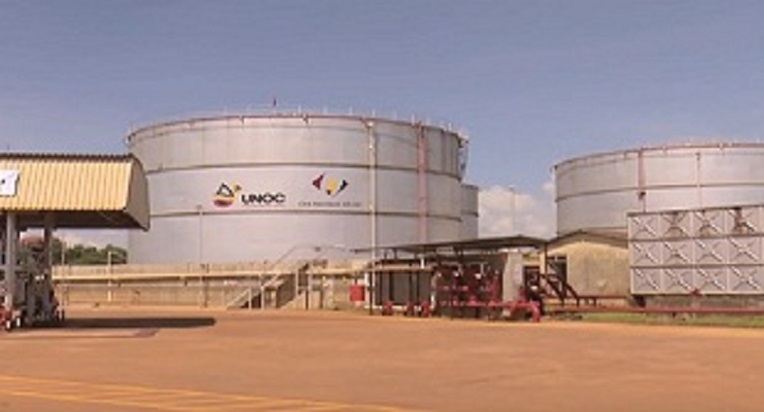The Uganda National Oil Company (UNOC) has revealed that the first phase of the new fuel storage facility will cost over 550 billion Shillings (USD 140 million). The new reserve facility in Buloba is designed to store up to 320 million liters of fuel.
While providing an update on the agency’s performance to journalists at the State House Investors’ Protection Unit offices in Kampala, Proscovia Nabbanja, the UNOC Chief Executive Officer, informed that the works for the facility, which is intended to act as both a government reserve and storage for oil marketing companies are underway.
“The project designers are making progress, the environmental social impact assessment (ESIA) was completed, and procurement of strategic partners is ongoing.”
According to Nabbanja, at present, the reserves contain only 6 million liters as security stock. Depending on consumption.
Nabbanja says that as part of the efforts to improve the operational efficiency of the old terminal in Jinja, it will be connected to the lake through a pipeline.
She adds that the new terminal will be developed in a phased manner, to receive fuel from Uganda’s refinery, as well as serving other purposes.
Speaking about UNOC being the sole importer of petroleum products for the country, as the amended Petroleum Supply Act stipulates, Nabbanja says that this policy direction will enable them to manage pump prices, ensure security of supply through managing any shocks, and help the agency generate its income, thereby reducing the burden on the treasury.
“The other thing is that if we do not prepare ourselves today to sell the oil finished products when we get the capacity to sell our own, training and testing the market starts today. And even though we receive our own fuel, we shall not stop importation. What if the refinery shuts down for maintenance? What if there is no production? What if there is a reduction in production? We will still need some level of importation to sustain the market, and the market is growing,” she explained.
Uganda’s ambitions to have UNOC as the sole importer of its fuel are currently on hold due to an injunction issued by the Kenyan court over a constitutional petition filed by Kenyan interested parties challenging the constitutionality of the move. In this suit, the respondents are UNOC, the sector regulator in Kenya, alongside the Kenyan government.
Peter Muliisa, the head of the UNOC legal team, says that they have challenged the petition, and out of the six issues of contention, four have since been dismissed, only awaiting judgment on the remaining two.
Updating about the East Africa Crude Oil Pipeline, the UNOC team informed journalists that the civil works are ongoing, and the project has so far received two consignments of pipelines for the first 100 km of the route.
It was also established that up to 95 percent of land acquisitions in Uganda have been compensated, while those in Tanzania are at a 97 percent compensation rate. Without much detail, it was also informed that the pipeline has obtained an insurance company to cover it.
-URN





